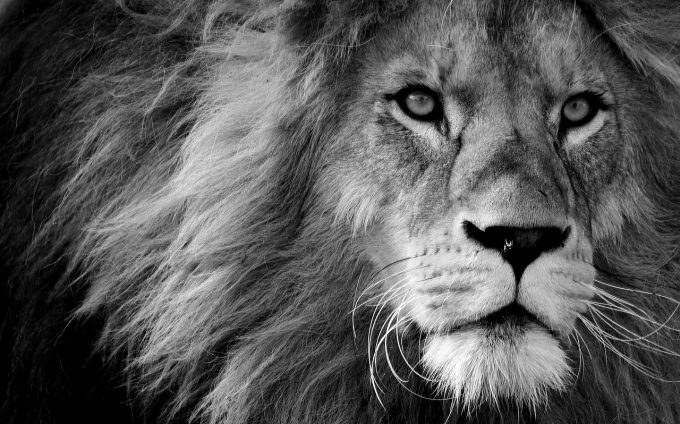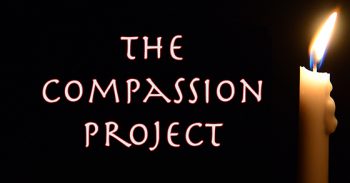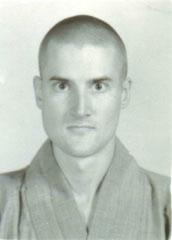It’s a new ABC: Animals, Believers, Compassion. I’ve long been perplexed at why so many people of faith, just about all faiths, strive to show compassion to their fellow humans but turn a blind eye to the animals they eat and wear. In both these ways, most “religious” or “spiritual” people are identical to most “secular” people.
Vegans hear the arguments: “Jesus ate fish.” “The cow is sacred and we’re supposed to consume her milk.” “The Prophet Muhammad, peace be upon him, ate Halal meat.” And yet, at the heart of every faith, and at that unnamed place of connection where the “spiritual but not religious” find solace, we find the same stunning substance: love — boundless, blind, without condition or prejudice.
In the day-to-day world, it can be difficult to be a vegan and a person of faith. The difficulty doesn’t lie with the vegan and God; it’s between the vegan and God’s other children. Our presence makes non-vegans uncomfortable. Especially in a religious or spiritual setting, there’s an understanding that everybody is following the basic tenets: loving their neighbors, treating others as they’d wish to be treated, and doing okay on the Ten Commandments, certainly the one that says “Thou shalt not kill.” There’s the sense of “Morality-wise, we’ve got it covered.” Then along comes the vegan who, without saying a word, points out the obvious.
Filmmaker Thomas Wade Jackson noticed these disconnects when he was active in a church in New York City and saw people there go the extra mile to be kind and seek to do the will of God in their lives — until it was time for Sunday brunch. Then he noticed that even the pastors and chaplains and the leader of the choir were eating what was left of poor, dead animals, and their “byproducts,” leading to more poor, dead animals. No one questioned it, even though this particular Protestant church (Unity) was founded in the 1800s by two strict vegetarians.
This led Thomas to think back to previous church experiences in his life, and he realized that he’d never met a vegetarian, let alone a vegan, at any religious institution. While he knew that some yogis were vegetarian in keeping with the tradition of ahimsa, many of those were strongly anti-vegan, singing the praises of milk, cheese, and ghee. He knew of the many dietary rules of Orthodox Judaism, including the one that doesn’t allow the consumption of meat and dairy at the same meal, or even prepared and served with the same utensils, acknowledging that the cow killed for beef is the same one whose baby’s milk humans also consume. He was also aware of kosher and halal slaughter, an attempt of ancient people to make the act of killing as humane as possible, and yet as he looked around the world in 2016, he was met with the fact that this is no longer antiquity. Why are religious people still making excuse for imprisoning and murdering God’s other creatures? If indeed a beneficent Creator is there to see a sparrow fall, what could God possibly think of a Tyson Chicken plant?
With all these questions swirling about in his mind, Jackson was determined to put his filmmaking skills to use in creating a documentary looking at vegans of all faiths: Roman Catholic to Native American, Jewish to Jain, Buddhist to Zoroastrian, and many points in between. Then he proposed to take some this footage to non-vegans of those same traditions and see if someone from within the fold could convince a fellow believer of the spiritual, as well as the moral and practical, necessity of going vegan. Thus, The Compassion Project was born. He brought me on as producer (that sounds very grand; it just means I know a lot of people and am willing to talk up projects I believe in), and already on board to participate are such vegan luminaries as Bruce Friedrich, Milton Mills, MD, and Will Tuttle, PhD (It’s Will who’s shown below, recent shots flanking an image of him as a young Zen Buddhist monk.)
The Compassion Project is a labor of love, and I feel certain that, with some help of other vegans, Thomas Wade Jackson will pull this off. People have asked, “But why not atheists? We’re vegan, too.” Of course, and vegans with a fully secular worldview are doing incredible work in saving animals. Mr. Jackson is actually considering a future film called The Justice Project to look at atheists, agnostics, secularists, and humanists taking a stand for our fellow beings. But that’s another movie. This one is focused on a target audience, the 80 percent of Americans (85 percent of people worldwide) who claim to believe in some Higher Power. This is a ripe market. I’m envisioning screenings of this film — and lively debates afterwards — in church basements and yoga retreat houses and Jewish community centers all over everywhere.
In the meantime, those of us who do attend worship services — or yoga classes or 12 Step meetings — are usually the odd vegan out. It’s important, I think, that we stick to our convictions and maintain enough humility to know that many of the non-vegans we meet there are doing brave and laudable work too. I see these people use their vacation time for mission trips to work with the profoundly poor, or sacrifice their own comforts so that strangers can have some necessity they’d lacked. I can have admiration for them and gain inspiration from what they do. I can also offer them a bowl of vegan chili or a bag of vegan cookies. And I can strive to be healthy and let them know how I do it. I can go out of my way to help animals when it isn’t easy or convenient, and know that they’re noticing that, the way I notice that their Saturdays spent building houses with Habitat for Humanity.
And I can speak up and speak out, in a spiritual community just as I would anywhere else. Way back in the early 1980s when I was researching the college thesis that would become my first book, Compassion the Ultimate Ethic: An Exploration of Veganism, I was hosted by a charming Catholic priest in Dublin. He told me that he’d be assigned to a church, stay for a year, and then give present his homily on animal rights. “After that, they move me somewhere else,” he said. “It used to bother me, never getting to stay in a parish after telling them about the animals, you see. But now I look at it differently: they send me so many places, I’m talking about animal rights all over Ireland.” Maybe that’s what we all get to do. And with enough talking — and living, shining, cooking, sharing, being — we’re going to change some people.
Hallelujah to that.
Victoria Moran majored in religious studies and has written books about spirituality — Shelter for the Spirit, Creating a Charmed Life, Lit from Within — as well as Main Street Vegan and other vegan titles. She is producer of The Compassion Project, the in-the-works documentary discussed here. To see clips from the film, and contribute to its making if you’re so inspired, please visit the film’s crowd-funding page — there are wonderful perks for contributions of every size. You can also “like” the film’s Facebook page and follow on Twitter: @CompassionMovie.







Victoria, you are doing such a tremendous job of educating the public almost from the very beginning of your life! I enjoy reading everything that you have to write and listening to what you have to say. Just one comment on the Sacred Cows. Of course the Indian population of India drink the milk of the cow, not so much because it’s from a Sacred cow but because of their belief in Ayurveda Medicine where Milk/Dairy has a ‘cooling’ affect on their doshas. The cow is considered Sacred because it is their belief that a cow’s life is the last life it will experience as an animal. For that cow’s next life, it will be reincarnated into a human for the first time. So for millions of cows that are slaughtered, there will be millions of babies born. Population explosion. Less cows killed, less babies being born. It’s a balance of the yin and yang, the Karma factor such as, ‘for every action there is an equal reaction’.